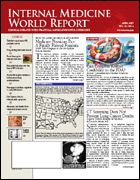Noninvasive Therapy for MRSA-Colonized Diabetic Foot Ulcers
Staphylococcus aureus
Lucilia Sericata
Diabetes Care
A noninvasive, risk-free therapy may be a viable alternative to antibiotics and invasive therapies for diabetic foot ulcers colonized with methicillin-resistant (MRSA). Applications of sterile, free-range larvae of the green bottle fly have been shown to be safe and effective in a new preliminary study (. 2007; 30: 370-371).
Diabet Med
MRSA-colonized diabetic foot ulcers have become a persistent problem in community healthcare facilities and in hospitals. In a previous study of 63 patients with diabetic foot ulcers, MRSA was isolated from 30% of the wounds, which was double the rate of only 3 years earlier (. 2003; 20:159-161). Therefore, strategies to eradicate MRSA are crucial.
This observational study included 13 patients (aged 18-80 years) who had MRSA-colonized chronic diabetic foot ulcers of >3 weeks’ duration. MRSA colonization was associated with hospitalization, current antibiotic use, and residency in a nursing home. Colonization was defined as the isolation of MRSA from the ulcer in a patient without clinical and/or laboratory signs of systemic infection. More than 60% of the participants had a history of ulcers. None of the ulcers was vancomycin resistant.
Larval therapy was applied to MRSA-colonized ulcers for 4 days. The primary end point was complete eradication of MRSA after a minimum of 2 and a maximum of 8 larval applications per ulcer. No topical antimicrobial agents or growth factors were used.
After a mean treatment duration of 19 days (range, 7-45 days), MRSA colonization was eliminated from all but 1 of the 13 ulcers with an average of 3 larval applications. No adverse events were reported by any of the patients.
The average 3-week treatment duration in this trial is far shorter than the 28 weeks of therapy typically needed with conventional treatment of such ulcers, the authors, led by Frank L. Bowling, BS, DPM, point out.
“The high success rate of larval treatment in eradicating MRSA colonization from diabetic foot ulcers is promising,” they write. “If confirmed…larval treatment would offer the first noninvasive and risk-free treatment of this increasing problem.”
